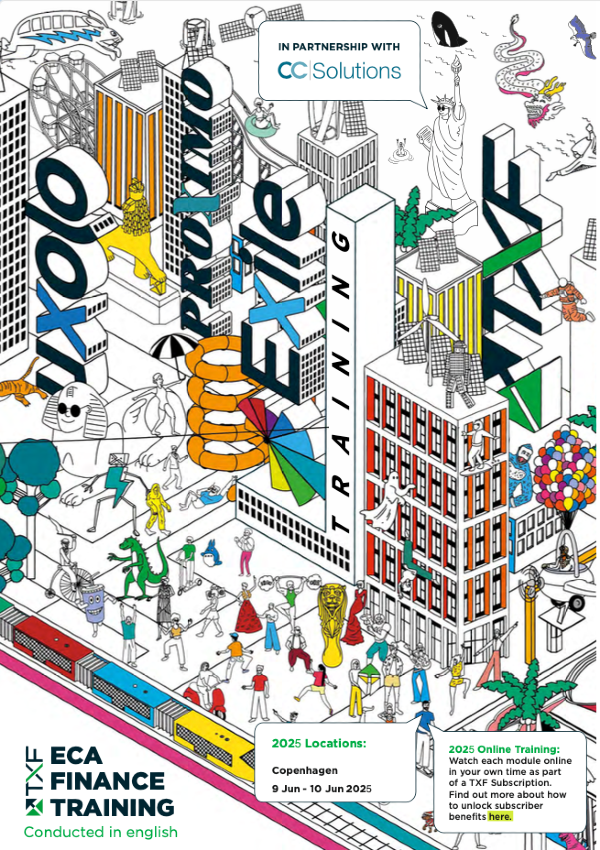Rio Tinto’s workplace report shows toxic culture prevails
The publishing of some shocking statistics in Rio Tinto’s Report into workplace culture has sparked a much-needed discussion around the necessity of a cultural re-haul – within the mining industry and beyond.

In conducting TXF’s Stages for Change article series – a collection of Q&A interviews spotlighting the brilliant women in commodity and export finance – the overall market sentiment surrounding diversity and equality in the industry is largely positive.
While many interviewees remarked that the traditionally male-dominated industry still has ample room to improve, the general sentiment was one of acceptance of how far the market has come, even from just a decade ago, when it was rare to see female speakers on stage at industry events, and women in leadership roles were few and far between.
But Rio Tinto’s Report into Workplace Culture, which was published at the start of the month, painted a stark and disturbing picture of what company culture in one of the world’s largest and most successful mining companies can resemble.
Conducted by former Australian sex discrimination commissioner Elizabeth Broderick, the report comprises responses from over 10,000 employees representing an internal response rate of 21.67%, making it one of the largest independently administered prevalence surveys in a global resources company and provides a statistically influential sample size.
The 77-page research project was comprehensive and condemning, having found that almost half the respondents experienced bullying at work, 40% of men and 32% of women reported that they had experienced racism at work, and almost a third of women said they had been sexually harassed at work - including 21 women who said they were raped or sexually assaulted at Rio’s mines over the past five years.
On top of this, the survey results showed that employees do not believe the organisation is psychologically safe, that harmful behaviour occurs throughout the professional hierarchy - including from senior leaders – and is often normalised, and that almost all cases of discrimination, bullying, and sexual harassment go unreported. The latter suggests that Rio employees do not feel comfortable coming forward to report harassment, and an urgent rehaul is needed.
In other words, for a distressingly high percentage of minorities, whether it be gender, race, or sexuality, the workplace is often a troubling and dangerous environment for Rio Tinto employees. While gender diversity often gages the most focus in the world of commodities, and mining industry culture is known for its toxic masculinity (Rio is 79% male), one quote taken directly from a survey respondent reads: “Rio is definitely a boys club, but it is a white women’s club as well”.
Although this information is vastly unsettling, there must be some positive recognition given to Rio. In commissioning and publishing this piece of research in an honest pursuit of change, Rio is actively and voluntarily seeking to identify issues with the view of solving them. The report also includes a framework for action based on the findings, offering tangible solutions directly formed by its employee’s experiences and feedback.
It’s easy to glance at the report findings and assume that workplace culture at Rio is anomalously poor. But what is to say that other companies, particularly in the commodities industry, which is not characteristically known for its diversity, would not uncover similarly shocking statistics if research reports of this kind were more widely conducted?
Following the destruction of a 46,000-year-old Aboriginal heritage site in 2020, when Rio blew up two sacred rock caves as part of a mine expansion which sparked outrage and incited calls to strengthen Western Australia’s heritage protection laws, the mining group is undergoing a cultural rehaul.
This careless incident cost former chief executive Jean-Sebastien Jacques his job, giving way to Jakob Stausholm who was appointed as the new boss on new year’s day 2021. On taking the reins, Stausholm vowed to deliver a more inclusive leadership style with a focus on teamwork, and to be a more outward looking company.
Rio’s Report into Workplace Culture has shown that this shift in executive management and the adoption of a proactive approach towards improving company culture has already provoked an increased confidence amongst Rio employees.
The findings stated that employees felt that there has already been a visible shift towards healthier culture over the past month, and that there is a high level of confidence amongst employees that the company will make a meaningful difference in relation to addressing harmful behaviours over the next two years. There was also a strong appetite for cultural change across the organisation including at senior level.
The importance of conducting research like this is unparalleled; without the initial data, a company cannot begin to evaluate where it falls short and identify solutions to address these inadequacies. The public publishing of this report will have provoked conversations surrounding workplace culture for many, something that is vital for widespread change to occur, whether it’s within the mining industry, the commodities industry, the wider financial industries, or beyond.
Even a quote from a respondent shows that the survey unlocked a certain level of clarity on reflection that may have otherwise not been realised, reading: “After I took part in the bullying, sexual harassment & racism survey I realised that at some stage at work, I had been bullied and experienced sexual harassment, even though at the time it happened, I was not aware…”.
With WISTA (Women's International Shipping & Trading Association) and PwC conducting an industry-first survey on diversity and the role of women in the trading and shipping sectors in Switzerland this year, research projects of this kind are gaining valuable momentum within the commodities industry.
WISTA’s survey will comprise two sections: one that allows HR professionals to gain a better understanding of what the current state of the industry is, and one that looks at employee perceptions, to establish whether they feel as if equal opportunities are available.
These first few advances are a drop in the ocean and could perhaps almost seem like one step forward and two steps back, as this research is at risk of producing statistics that reveal the industry to be severely more backwards than it may outwardly appear. But this initial stage of remodelling company culture in a traditional and slow-to-change business is an essential one and marks the first action in provoking a cultural revamp where it is blatantly needed.
The mining industry once treated fatalities at work as an unavoidable given, but has since evolved to treat safety as one of its main priorities, with Rio now boasting three zero fatality years – a vast improvement from the 40 people that lost their lives at its mines between 2012 and 2014.
The report’s framework for action reads: “It is recommended that Rio Tinto’s risk assessment, management and controls processes be utilised to capture hazards and risks associated with harmful behaviour as safety risks, including risks to psychological safety.” Once risks to psychologically safety are treated with the same onus as that of physical safety now is, Rio should aim to produce changes of the same scale as its improvements around work fatalities.
Become a TXF subscriber for unrestricted access to TXFnews.com 365 days a year
Contact us for individual and team rates by emailing subscriptions@txfmedia.com
Take a look below at some of the exclusive subscriber articles published last week
Why can't commodity traders be more ESG transparent?
Can ESG claims by commodity traders be taken seriously if they cannot be verified independently? And is ESG opaqueness going to force regulation?...Read on here
Shalina Resources: The offtake impact
In securing a $600 million loan from Trafigura to finance its mining operations in the DRC, producer Shalina Resources is not only using....Read on here
Metallurgical and thermal coal: Different cokes for different folks?
Provisional results from TXF's annual Export Finance Industry Survey indicate that the retreat by export finance banks and ECAs from coal is very real. But it is also largely indiscriminate in its...Read on here
Full details of Pakistan’s BQPS-3 power station financing revealed
Financing collaborative projects in Pakistan can be tough going. But TXF can now reveal the full details of Pakistan’s Bin Qasim Power Station 3 (BQPS-3)...Read on here
Viterra finalises KPIs on $800m ESG-tied borrowing base
Agri trader Viterra, previously known as Glencore Agri, has finalised the KPIs on the first ever...Read on here
PLN to sound out lenders for Kupang gas-fired plants
Indonesia's state-owned PLN is expected to sound out banks and ECAs for two...Read on here
More details emerge on AFC's $400m syndicated loan
More details have emerged on Africa Finance Corporation (AFC)’s $400 million syndicated loan to support the...Read on here
Assiut oil refinery expansion closes financing
The $1.3 billion SACE-backed financing backing the Assiut oil refinery expansion project in Egypt reached...Read on here
Demeure calls for urgent action on Basel III trade finance advocacy
Guillaume Demeure has urged industry participants to have their say on EU Commission’s draft capital requirements regulation ahead of....Read on here
Polaris closes on Nicaragua geothermal refinancing
Canadian-listed renewables developer Polaris Infrastructure has closed a senior debt refinancing...Read on here
PLN to launch Minahasa gas-fired plant to market
Indonesia’s state-owned electricity utility PLN is expected to launch the bidding process to lenders and ECAs to...Read on here
DBS hires syndicated loan banker from Credit Suisse
DBS has hired Ivan Lee from Credit Suisse as a senior vice president in its North Asia loan distribution team...Read on here
RFQ deadline extended for Inglewood Transit Connector
The deadline for submitting statements of qualifications (SOQs) for the city of Inglewood’s new transit system has been extended....Read on here
RPS adds to its London advisory team
Global consultancy firm RPS Group has hired Jonathan Yates in London, to lead its push into infrastructure deal advisory across Europe...Read on here
BAI to sell Australian towers portfolio
BAI Communications has mandated Barrenjoey Capital to advise on the sale of its Australian towers assets...Read on here
Borton moves to MonetaGo
Mark Borton has joined MonetaGo, a financial technology company, as managing director...Read on here
Gregory joins PRI team at Swiss Re
Daniel Gregory has joined Swiss Re Corporate Solutions as senior underwriter, political risk insurance and sovereign credit risk, based in...Read on here





